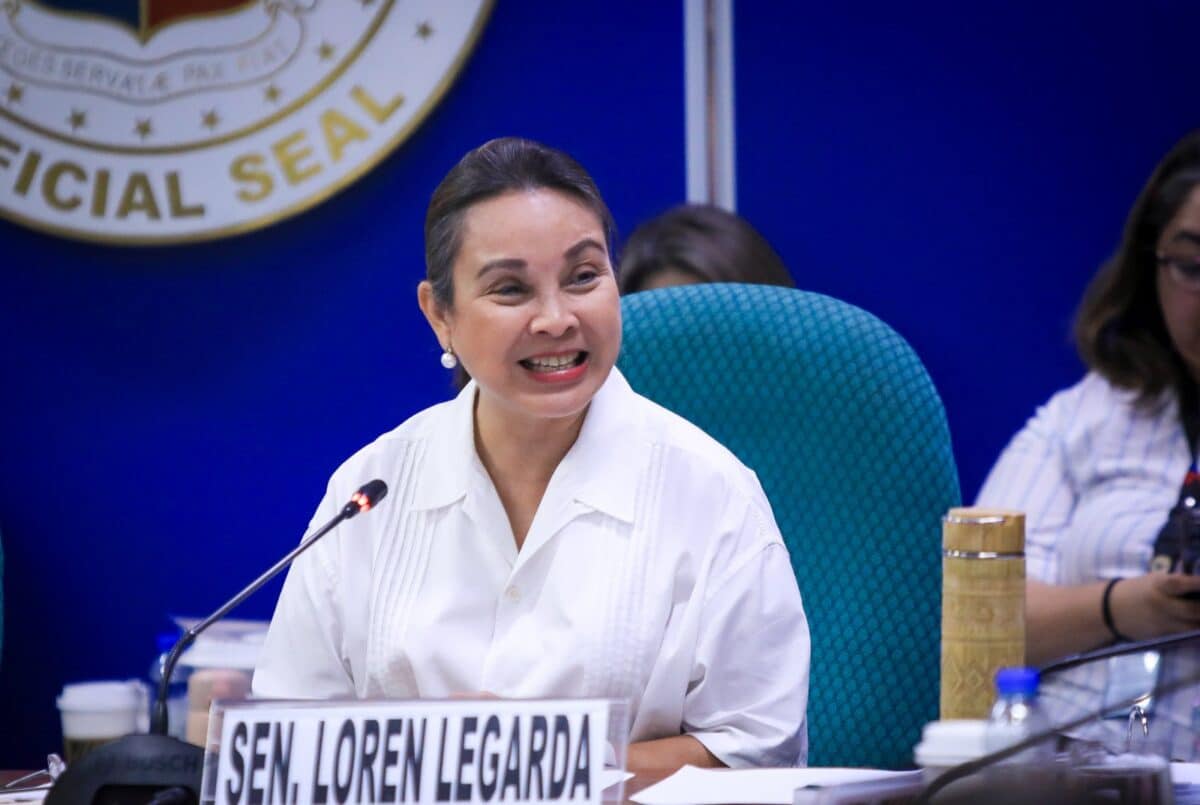Legarda: New PH maritime laws reinforce protection of resources

Sen. Loren Legarda
MANILA, Philippines — Senator Loren Legarda on Monday lauded the country’s new maritime laws, saying the measures reinforce “the Philippines’s ability to protect its marine biodiversity, coastal ecosystems, and marine resources.”
President Ferdinand Marcos Jr. on Friday signed Republic Act (RA) No. 12064 or the Philippine Maritime Zones Act and RA No. 12065 or the Philippine Archipelagic Sea Lanes Act.
READ: Marcos signs laws charting PH maritime zones, sea lanes
“The Philippine Maritime Zones Act and the Archipelagic Sea Lanes Act will not only safeguard the integrity of our national territory but also strengthen our legal and environmental frameworks for managing and protecting our seas,” Legarda said.
Legarda is the principal author and co-sponsor of the Philippine Maritime Zones Act and the co-author and co-sponsor of the Philippine Archipelagic Sea Lanes Act.
Article continues after this advertisementREAD: Senators hail new PH laws on maritime zones, archipelagic sea lanes
Article continues after this advertisementShe said the Philippine Maritime Zones Act defines the country’s maritime zones, including internal waters, archipelagic waters, territorial sea, contiguous zone, exclusive economic zone, and continental shelf. It will establish a solid legal framework for the Philippines to assert its jurisdiction and sovereign rights over its marine resources and surrounding waters.
She also pointed out that the Philippine Archipelagic Sea Lanes Act, which complements the Philippine Maritime Zones Act, designates specific sea lanes to ensure the swift and uninterrupted passage of foreign vessels through Philippine waters.
The law streamlines global maritime traffic, enhances national security, and enforces environmental protections.
It also provides a framework for regulating the passage of foreign ships, reducing risks like maritime pollution that can harm the country’s marine ecosystems.
“These laws work hand-in-hand to secure our seas, prevent environmental degradation, and foster regional stability, all while respecting international conventions like Unclos and the 2016 Arbitral Award,” Legarda said.
Legarda also called the enactment a pivotal moment in the Philippines’s commitment to environmental sustainability, especially amid the challenges posed by climate change and growing industrial activities in the country’s waters.
“As we move forward, these laws will solidify our maritime jurisdiction, ensure environmental sustainability, and protect the sovereignty of our waters for generations to come,” she added. — Emmanuel John Abris, INQUIRER.net intern